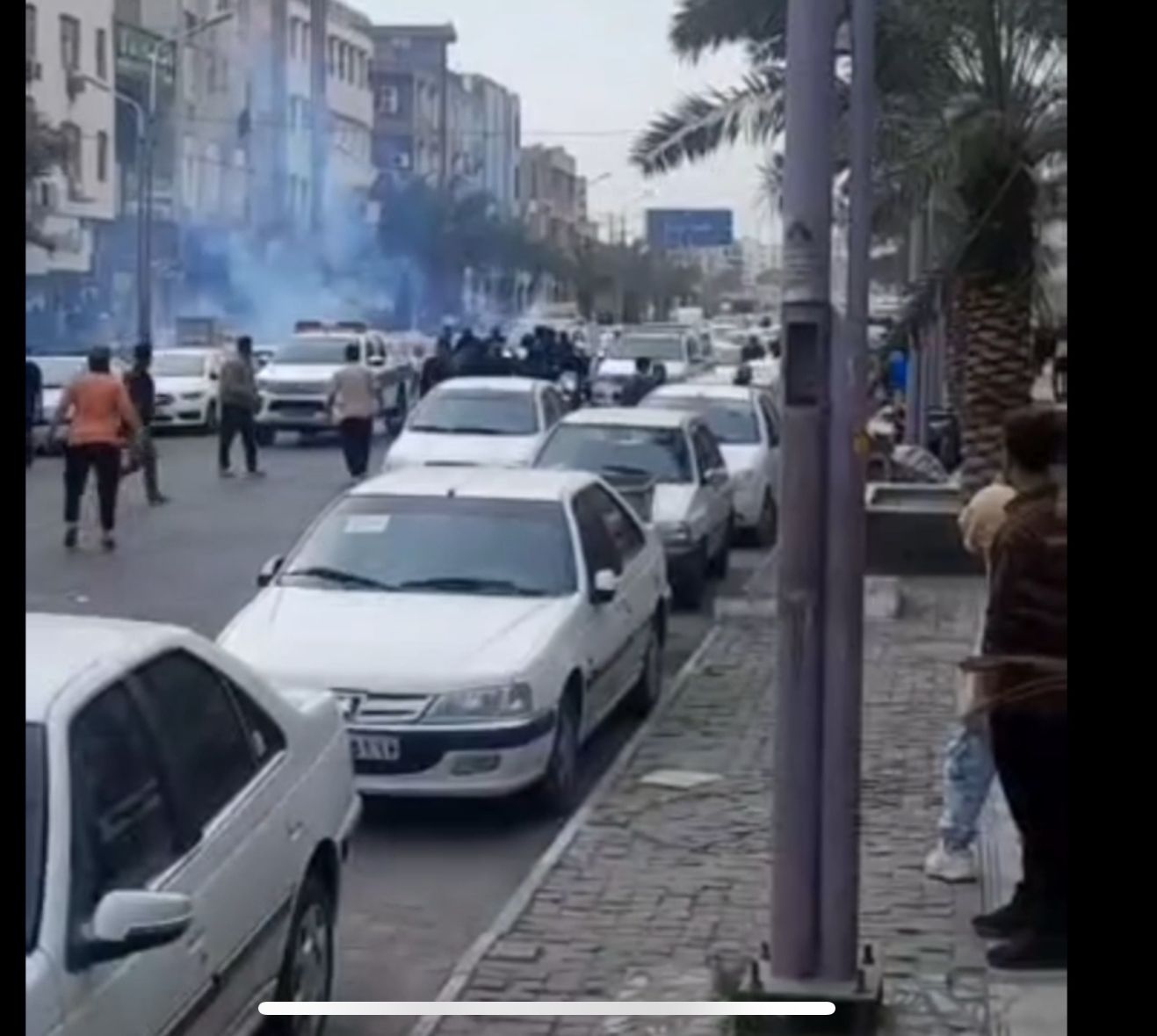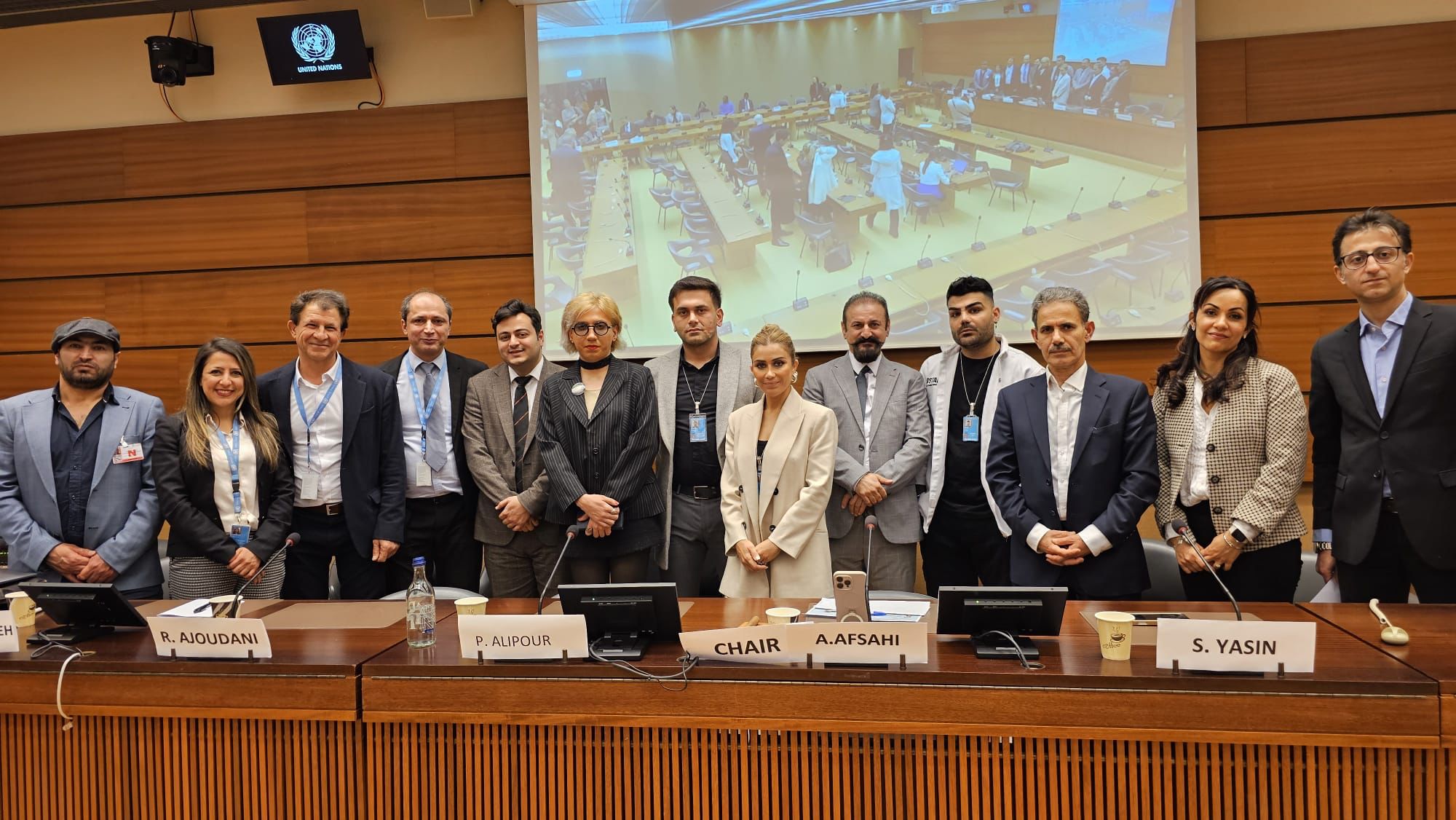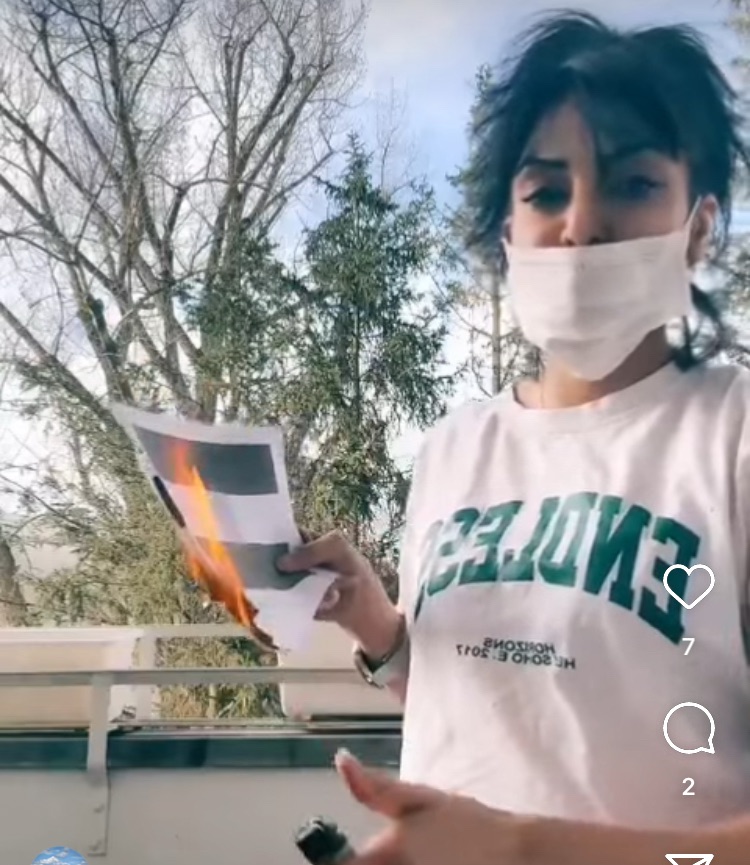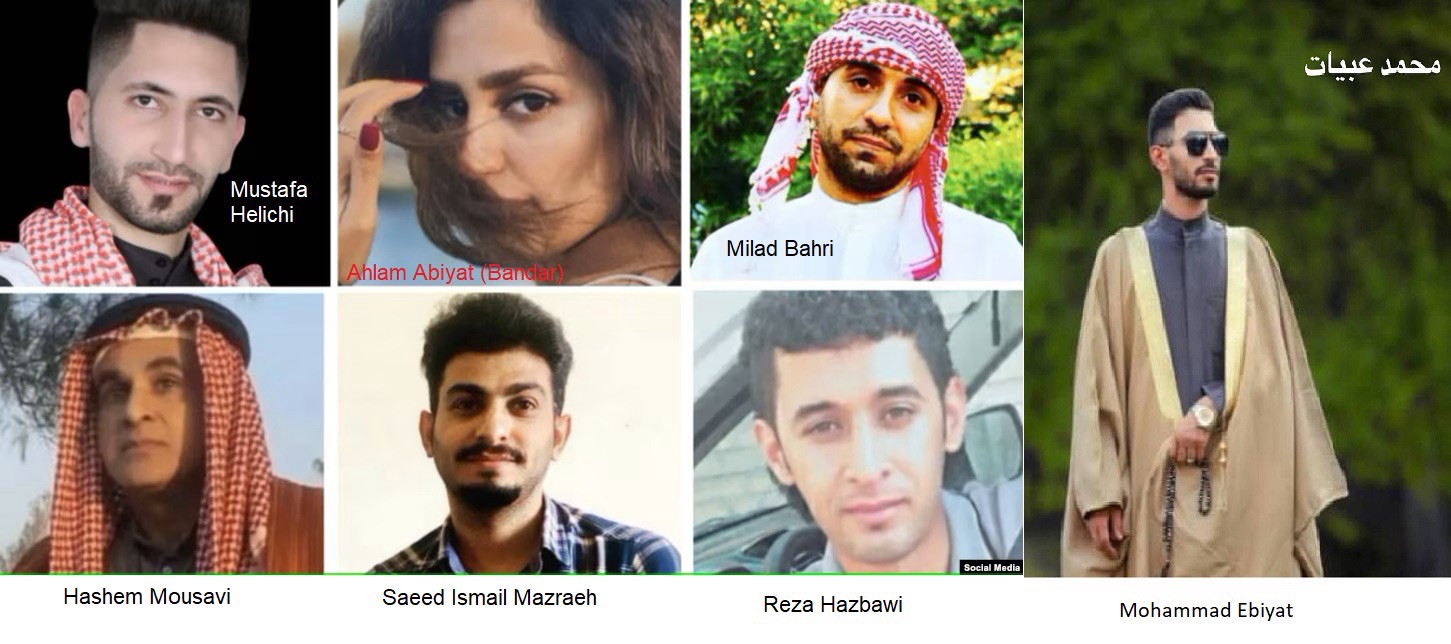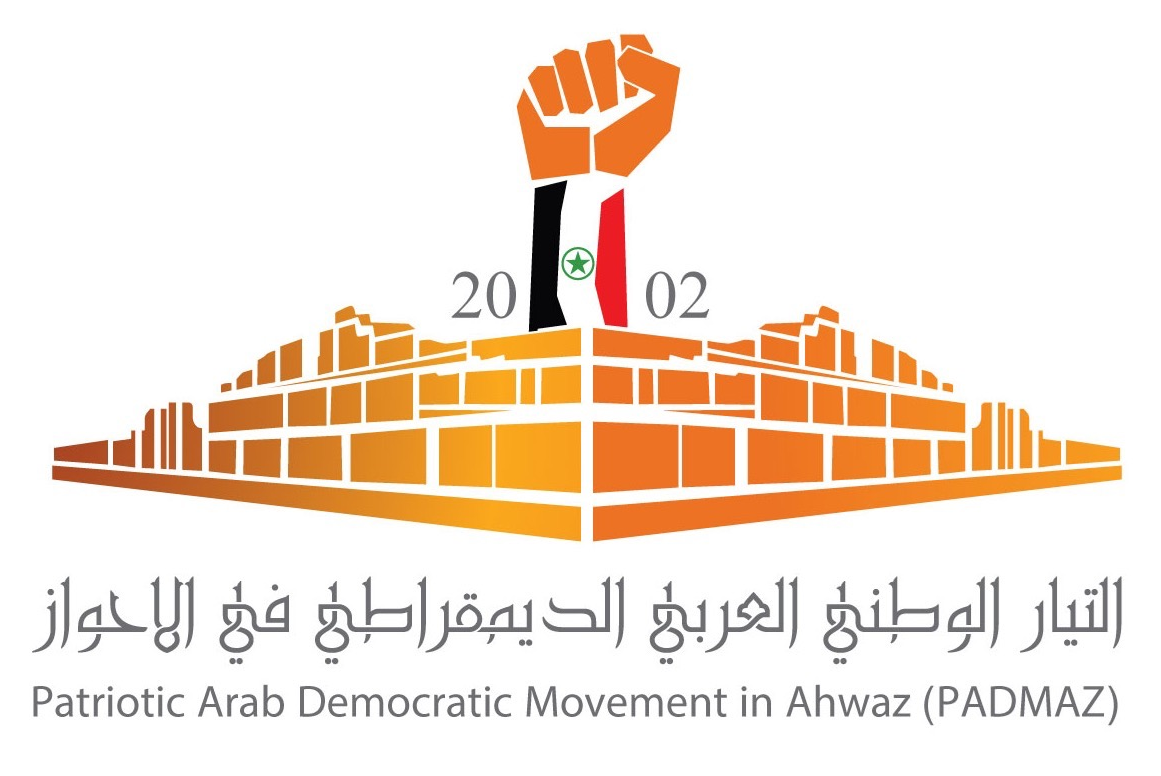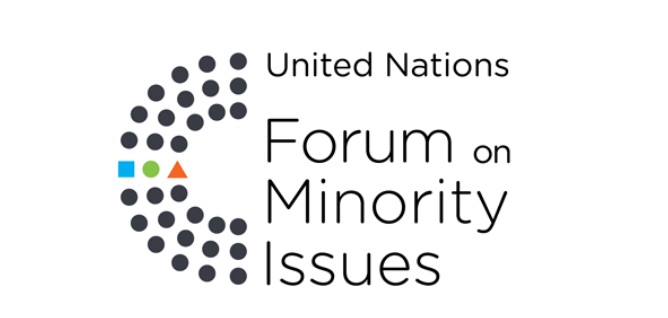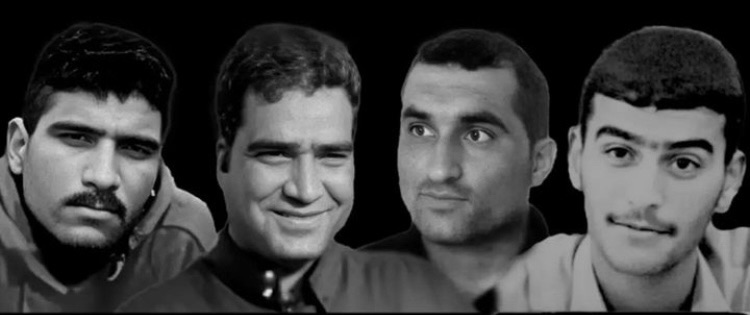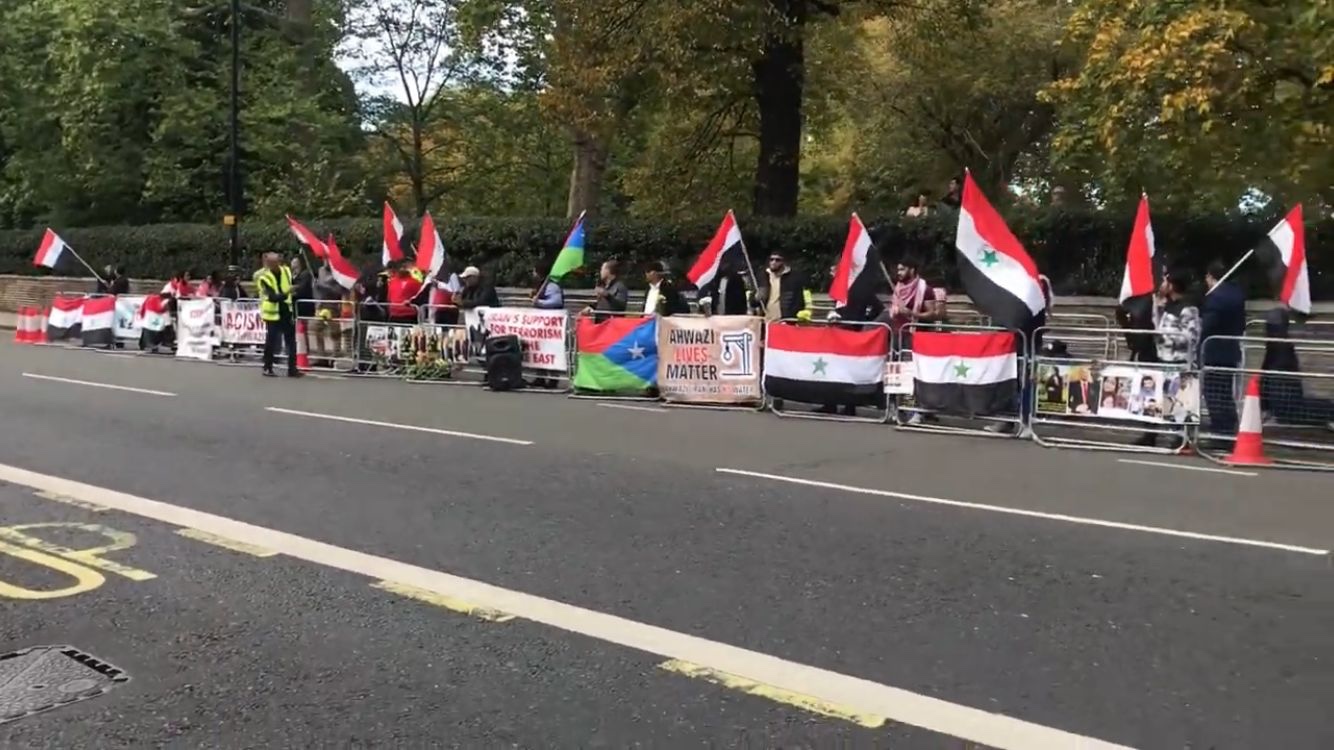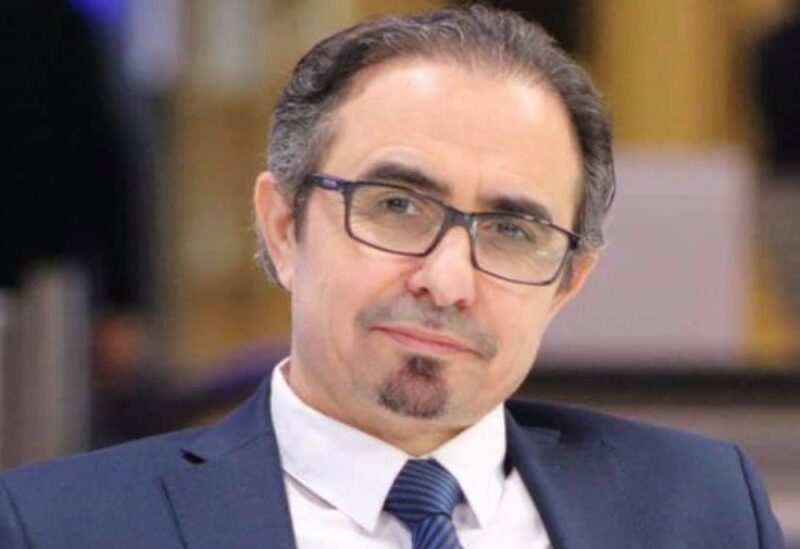Ahwazi child labourers died as the world remains silent

Two 12-year-old Ahwazi child labourers died horrifically in a road accident in June when they were hit by a heavy truck while crossing a road late at night. They were returning from a day’s scavenging through rubbish.
The two boys, Moslem Kenani and Mehdi Heidari, were lifelong best friends and neighbours from the deprived Malashiyeh neighbourhood of Ahwaz city. Both died instantly as they tried to cross the Ahwaz-Muhammarah motorway together on the night of June 18 to return home, with the truck driver not even noticing them until he had already hit them.
The boys, who had been forced to quit school due to their families’ desperate poverty, scraped a living to help feed their parents and siblings by scavenging through rubbish for dry bread and collecting bottles and cans to sell for scrap.
It should be noted that the Ahwaz region, once a celebrated regional breadbasket whose rivers and wetlands were also famed for the variety of marine life, sustaining generations of fishermen, is the location of over 95 per cent of the oil and gas resources claimed by Iran. Despite this vast natural wealth, the indigenous Ahwazi people live in conditions of abject poverty, with the regime in Tehran withholding the most basic amenities and services and denying them fundamental human rights. It is a standing, bitter joke amongst Ahwazis that the only things they receive from the oil and gas on their land – which earn billions of dollars per week for the Iranian regime – are pollution and disease.
According to members of an Ahwazi rights group who visited and interviewed the deceased children’s parents, both families live in dreadful poverty, with all the children having no choice but to work. Like the activists, both women spoke on condition of anonymity, fearing the regime might further penalise their families for exposing the dire conditions of their lives there.
Moslem’s mother, still devastated at the loss of her beloved son, told the human rights activists about the family’s plight, saying: “My husband was working on our farm, but in the past few years, we lost all the crops due to floods and then we had to sell our small farm to pay the debt of the loan he’d borrowed from the bank for buying barley and wheat. That was the only source of living to keep our heads above water. After that, my husband searched everywhere to get any type of job, but he failed; everywhere you go to get work you need to have connections, otherwise there’s no way to get a job. When Moslem saw us struggling to get basic things like food, he told us, ‘I won’t go to school till I help my brothers and sisters.’ As parents, we couldn’t agree or disagree – it’s meaningless when we weren’t able to afford to buy shoes and clothes for him and his brothers and sisters. He started scavenging for plastic bottles, and dry bread in 2017 – at the same time my husband also made a slingshot for hunting sparrows because we could not afford to buy any type of meat or fish, they are too expensive. Sometimes my husband hunts for sparrows and we keep some for us and the rest we sell it to local to get a small amount of money.
“Moslem used to get up really early and then rush to knock on his friend Mehdi’s house door so they’d go together to collecting plastic and dry bread. Moslem didn’t have a cart so he’d put his stuff in his friend’s cart and they’d sell it jointly and share the money. They were both working over 13 hours a day, and in the past few months, more and more children turned to collecting plastic due to poverty, so Moslem and Mehdi had to go to many areas to fill in their bags tied above their rattling cart. It broke my heart seeing his pale tired face. And despite everything he was happy; whenever he came home, he’d says ‘Here Mum, thanks to God, here is the money; don’t worry I am like a mountain standing behind you and Dad’s backs.’”
She paused and sighed for a moment before continuing; “Moslem was 12 years old, but the hardship and poverty made him think and speak like a mature man. His face was burnt due to exposing it to prolonged strong sunshine and heat over 122 Fahrenheit. Every night I’d rub his feet – they had so many blisters and warts, especially the left foot. He was wearing open sandals in all seasons … he always told me, ‘My favourite season is spring because it doesn’t hurt my feet but in summer my feet get burned and in winter my feet get frozen so badly that I can’t walk, and my friends tease me and call me a slow tortoise because they were fast in reaching the trash bins.’ Every time I’d tell him, ‘You must first buy shoes’, but he’d refuse and say ‘No way, I want you to get shoes and clothes for my brothers and sisters so they won’t be humiliated at school.”
Recalling the day he died, his mother said, “On Wednesday, June 18, just like every day, Moslem and his friend Mehdi woke up really early and went out searching for plastic and dry bread. They both used to come back around 8 or even later, 10 p.m., and me and Mehdi’s mum would always sit and wait for them in front of our doors to see them and go and help them with their cart. But that night they didn’t come – there was no way to call them, they didn’t have a phone. After a few hours, locals told us that Moslem and Mehdi were killed after a big truck hit them at 1 a.m. when they were trying to cross the road.”
Mehdi’s mother told a similarly tragic tale about her son: “Due to the strong sunlight, Mehdi started having problems with his eyesight and he started to have poor vision at night. I took him to a doctor, and they prescribed eyeglasses for him in 2018, but it was expensive, and we couldn’t afford to buy him eyeglasses. Moslem’s mother said that he was slower because he had warts and blisters on his feet. And probably due to Mehdi’s vision problem, he couldn’t see the cars well, so with those two things together they probably failed to cross the road quickly enough, especially when they were struggling to pull their cart.”
In addition to the tragic phenomenon of child labour in Ahwaz, the tragic deaths of these two friends also bring attention to the perilous Ahwaz-Muhammarah road, which is widely known locally as the ‘highway of death’ due to the large number of fatal car accidents there with no crossings or road bridge to enable people to cross safely.
Speaking on condition of anonymity, a local activist said, “The Ahwaz-Muhammarah road is very dangerous. There’s no way for locals to cross it safely, and this road is an essential road for Iran as many trucks use it for transportation, so it’s always busy. Despite that, the Iranian government pays no attention to the lives of people who live near the road. Many children in recent years especially school pupils, were killed on this road when they were trying to cross it to go to other side of the road to get to or from school.”
Another local, also speaking on condition of anonymity, revealed that she’d lost two children in accidents on the road and desperately wants to see safety measures introduced to prevent further deaths. “All the students who want to study in the upper grades must travel to Ahwaz so they need to cross the Ahwaz-Muhammarah motorway and that’s caused lots of terrible accidents in recent years. It’s not just my children – dozens of school pupils have died in recent years when cars hit and ran over them while they were on their way to the nearest school which is located five kilometres away. The local regime officials don’t even bother to put signs and signal lights here or introduce road-bumps and speed limits to reduce the number of these tragedies.”
Attorney and human rights activist Aaron Eitan Meyer underscored that the regime has neither justification nor excuse for these tragic deaths, much less the policies that caused them. “The Iranian regime has made a determined and consistent pair of decisions. First, it prioritises exporting its misbegotten totalitarian ideology by funding terrorism across the Middle East and beyond, along with its quest to achieve nuclear capability. Second, it engages in systemic racism, and then tries to blame sanctions for its reprehensible conduct. Iran could easily choose to allocate funding for its poverty-stricken areas and their typically minority inhabitants. It categorically refuses to do so, and that has directly led to the deaths of these boys, who never should have had to be working. From a legal perspective, the Iranian government has utterly failed its people, and in so doing has legally forfeited any legitimacy it could conceivably have ever possessed.”
Meyer continued, “it fitting that I write this on America’s Independence Day, when we declared that ‘whenever any Form of Government becomes destructive of these ends, it is the Right of the People to alter or to abolish it, and to institute new Government, laying its foundation on such principles and organising its powers in such form, as to them shall seem most likely to effect their Safety and Happiness. The principles embodied by America’s Declaration of Independence were not limited in time and place, but represented universal truths, and guiding principles by which to assess the legitimacy of governments. By every measure, Iran has utterly failed its peoples, and the avoidable deaths of these boys is yet another example of this. The Ahwazi people, and others who suffer under the regime’s brutal thumb, deserve these universal rights, and have been deprived for far too long. The free nations of the world must take note and act.”
Although the regime continues to spend billions of dollars on militias and wars across the Middle East, the worsening economic crisis in Iran is hitting the poorest first and worst, with reports of widespread malnutrition particularly among the state’s doubly oppressed ethnic minorities, including Ahwazis, who were already struggling to survive even before this latest crisis; although the regime likes to blame US sanctions for the problems afflicting it, the long-suffering people are fully aware that the regime’s military expenditure on militias and regional war makes a mockery of its claims, and that they are, as always, being treated as expendable by a regime that cares only about its own survival.
This economic crisis means that people who already had little or nothing are desperately struggling to stay alive. Denied employment or aid by the regime and subjected to relentless abuse and persecution, the poorest of the poor in a region whose mineral resources alone should provide its people with wealth like Qatar’s have no choice but to send their children out to scavenge through rubbish for food and scrap simply so they can live. The dangers of such work for children are numerous, not just through the risk of contracting disease from the unsanitary conditions and vermin around rubbish dumps, but via exploitation, violence and abuse of the vulnerable and weak by the stronger or more desperate or by child abusers and predators.
For Ahwazis, there is no social safety net, particularly not from a regime that views them as racially inferior to ethnically Persian Iranians; whilst Iran’s regime likes to present itself internationally as nobly resisting injustice and protecting the oppressed, this pretense is a terrible and cruel joke for those who know its real, systemic racism and murderous oppression first hand. To give but one example of these quintessentially racist policies, the regime builds special ethnically homogeneous settlements for Persian-Iranian settlers which are provided with all the amenities withheld from the indigenous people; these homes and well-designed settlements are constructed as one of the inducements offered to ethnic Persians to persuade them to move to the area to work in the oil and gas industry there or the related refineries or in the loss-making sugarcane farms and refineries established by the regime.
The indigenous Ahwazis are denied any but the most menial jobs and are routinely driven out of their homes and lands, which are handed to state bodies or to ethnically Persian incomers, with the dispossessed owners having no legal recourse to any complaints procedure or compensation for losing their homes, possessions and livelihoods; any attempt to complain or take legal action against this systemic abuse by the state authorities will see the Ahwazis rather than their persecutors being arrested and often imprisoned on fabricated charges following kangaroo trials. This injustice and persecution is perpetuated and normalised through offensive and systemic racism, with Ahwazis depicted as uncivilised barbarians and savages and subject to insults such as “camel’s-milk-drinker”.
No 12-year-old boy should have to be a mountain for his destitute parents, and no 12-year-old boy should die because he was forced to work. The world has remained silent and indifferent on their deaths, just as it had on their lives. This silence must end, so that the regime’s crimes against its peoples can be ended.
By Rahim Hamid
Source: dusc.org

